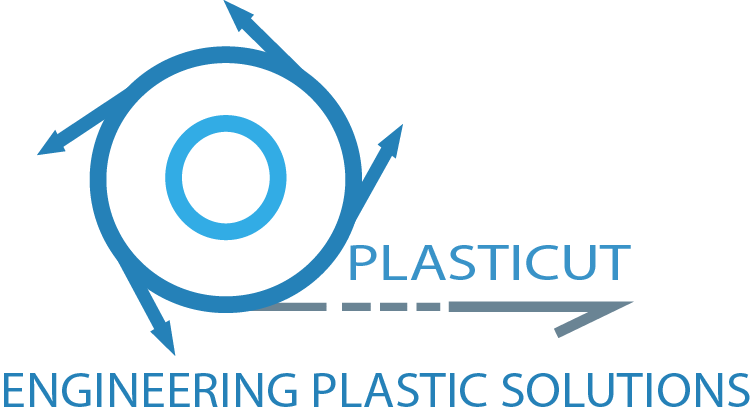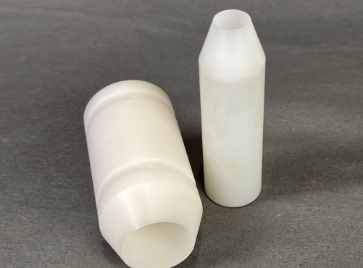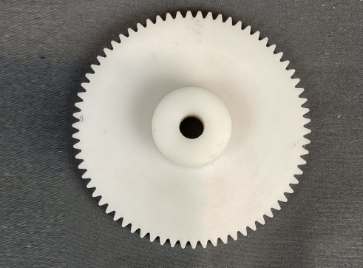Plastics are materials made out of organic molecules that can be molded into practically any shape and then retain that shape after cooling or setting. Plastics are a familiar material and are used to make practically everything in the modern world. Currently, most plastics are made out of organic molecules derived from petroleum. One of these organic molecules is called polyethylene terephthalate, or PETE for short. A derivative of PETE called PETP (sometimes called Erylate) is widely used to make thermoplastic materials.
Properties
PETP is described as an unreinforced, semicrystalline thermoplastic polyester. It is either transparent or opaque white, depending on the size of the particles and the manufacturing process. Molten PETE can be transformed into an amorphous, semicrystalline resin by rapid cooling. This state is the most stable of all PET forms, and it is exploited to produce PETP.
Its properties include:
- High mechanical and dimensional strength
- Very rigid and hard
- Resistant to notching and abrasion
- Resistant to stains, acids, and radiation
- Low coefficient of friction
- Low moisture absorbance
- Thermostable
- Physiologically inert
Like all plastics, PETP can be melted at very high temperatures and formed into any desired shape. Unlike most plastics, PETP can also be machined into precisely shaped parts. It is often manufactured as blocks, sheets, rods, or tubes. These pieces are then machined into the desired shape for their end use.
There are a few variants of PETP available on the market. Black PETP is darkly pigmented to protect the material from ultraviolet (UV) light. Standard PETP will break down over time if exposed to UV and oxygen. However, black PETP is highly resistant to UV, acids, salts, perchlorinated and fluorinated hydrocarbons, oils, solvents, and surfactants. Black PETP is the clear choice for applications subjected to sunlight and harsh chemical conditions.
PETP is sometimes available in a colored form, most commonly blue. This is just standard PETP with a coloring agent added for aesthetics.
Self-lubricating PETP is also available. These products have had a solid lubricant added to the material to enhance its slickness. They may be called various things, most commonly PETP-X. PETP-X is ideal for moving parts to prevent adhesion and reduce wear.
Uses
PETP has many uses as a weight-bearing and structural component. It has been FDA-approved and USDA-certified for use in food processing and packaging. It is also widely used to make structural and mechanical parts for machinery and electronic devices, where its high insulating capacity, low coefficient of friction, and resistance to abrasion properties are appreciated. Parts made out of PETP are frequently found in applications where metal and plastic components come into direct contact.
Parts made out of PETP are often found in:
- Food processing machinery
- Gasoline tanks
- Fuel pumps
- Electronic devices
- Mechanical devices
- Testing equipment
- Telecommunications equipment
Advantages
PETP has many advantages over other plastics. It has the best dimensional stability of all known plastics, and it is more heat-stable and wear-resistant than nylons and acetyls. Its resistance to acids, thermostability, and low coefficient of friction make it the best choice for many applications.
Parts made out of PETP can operate continuously at temperatures as high as 210 Fahrenheit/100 Celsius without suffering from deformation, degradation, or breakdown. It is the best plastic for use in machinery that processes materials under high temperatures and pressures.
It can also withstand autoclaving and radiation, allowing its incorporation into materials that need to be sterilized, such as medical devices and implants. Its physiological inertness and biocompatibility give it many advantages over other materials for medical uses.
Summary
PETP is a type of polyester that has been processed into an unreinforced, semicrystalline form. This material is characterized by being highly resistant to deformation, heat, wear, and acids. It can be formed into the desired shape either by melting and cooling or through precision machining. Its excellent properties have made it popular in mechanical engineering, electrical engineering, precision engineering, and the telecommunications industry. PETP is also physiologically inert and is widely used in food processing machinery. In fact, its many advantages mean that parts made out of PETP are the clear choice for a wide range of applications.
Contact Plasticut for all PETP products, including Sheet, Rod, Tube and Machined components.


